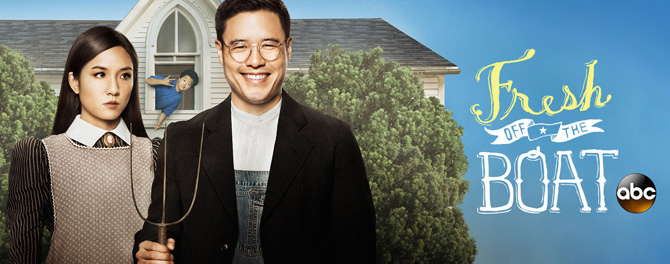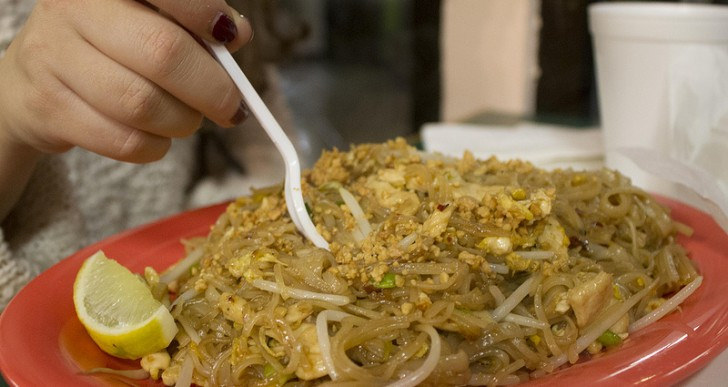I remember school lunches as a routine of bland, boring and ordinary. Either you ate the mystery meat in the cafeteria, or your mom made you lunch (which usually consisted of a peanut butter and jelly sandwich).
It was never a mystery opening my lunch bag. My mom always packed a peanut butter sandwich because I hated the taste of jelly. To add in some variety, she’d sometimes give me a plain turkey sandwich. Exciting, I know.
Despite bringing my own lunch to school for 12 years, I never opened my lunch bag to reveal Chinese food. That may sound odd since you don’t typically imagine 8-year-olds bringing cheong fun or xiao long bao to school. But I’m Chinese, so it makes sense.
When I was younger, commercials for the amazing portable meals called Lunchables appeared during my Saturday morning cartoons and I was immediately enthralled. You could make miniature pizzas, burgers and even nachos at the lunch table. Bonus: each meal came with a dessert.
I remember walking down the grocery aisles and begging my mom to get me an assortment of Lunchables for school to break the monotony of my peanut butter or turkey sandwich lunch. Most of the time she would say no, but sometimes she gave in to my cries and purchased one for me.
On the days I would bring Lunchables to school, I felt like the coolest kid in the cafeteria. Opening that thin cardboard box and revealing the Lunchable inside was like opening a treasure chest full of gold coins.
As I grew up and eventually left for college, my lunches grew up too. I didn’t care for Lunchables anymore and I started to cook my own food. However, when Fresh off the Boat premiered, the memories of my elementary school lunches came back.
In the beginning of February, ABC rolled out their new comedy, Fresh off the Boat. This show is inspired and based off the life and memoir of Eddie Huang, an American chef and food personality (he actually spent a year attending Pitt as well).

Photo courtesy of abc.com
Fresh off the Boat is the second sitcom ever to be centered around an Asian American family. The first was Margret Cho’s All American Girl in 1994. The entire Asian community, myself included, eagerly plopped in front of our televisions on Tuesday nights to watch ABC’s new show.
Eight episodes have passed, but the pilot episode still resonates the most with much of the Asian American community. Fresh off the Boat centers around Taiwanese family moving from a diverse area of Washington D.C. to the white suburbia of Orlando, FL in the search of the “America Dream.”
The family consists of a grandmother, father, mother and three sons. Eddie is the eldest son. Much of the first episode, and the episodes thereafter, focus on Eddie and his struggle to fit in at school.
One day during lunch, Eddie sits with a group of boys after finding out their shared affection for The Notorious B.I.G. He takes out his lunch, revealing a wonderful noodle dish made by his mom. Immediately, the criticism begins.
“Ugh, what’s that? Ying Ming is eating worms! Dude that smells nasty!” The kids throw mean comments at Eddie until he becomes so angered that he fights one of the boys. Soon enough, Eddie becomes embarrassed of his food and his heritage.

Photo by Lauren Eiden
I hate the idea of being shamed and ashamed of your culture and the fact that it actually happens tears me apart. Children shouldn’t have to go through experiences like Eddie’s, where they are rejected by non-Asian children simply because they eat different kinds of foods.
Young children go to school and are bullied for their cultural heritage and for being “different,” and this non-acceptance causes those children to believe that they are not normal. Their minds are plagued with comments such as “You don’t fit in,” or “Your culture is wrong,” or even “You don’t belong here.”
It appears to these kids that the only way out is through assimilation. This is what Eddie decided to do. He begged his mom to go to an American grocery store to buy new “white people food,” just so he could fit in at school. He didn’t want to be caught bringing noodles to school again—he no longer wanted to be himself.
Doesn’t that sound ridiculous? It was hard enough that Eddie’s family had to move to another state, but to integrate into the unaccepting society that his school turned out to be was an additional challenge that no one expected. As more episodes pass, you see the entire Huang family struggle to fit into American society, deciding whether to stick with their Chinese heritage or assimilate into America.

Photo courtesy of ibitimes.com
This show is set in 1995, and the world has certainly progressed in the past 20 years. However, there is still intolerance towards others of different ethnicities. This intolerance has become even more exposed in the past year. The United States is supposed to be a melting pot of different races, cultures, genders, ideas and religions where everyone is accepted for who they are.
Unfortunately, incidents like this reject that notion. Nobody should be ashamed of who they are or where they come from. Nobody should be scared or embarrassed of expressing their own cultural heritage. People shouldn’t have to change themselves to blend in with the majority population. We are each a necessary and special ingredient in the melting pot of the United States of America.
Before I came to Pitt, I never thought about or embraced my culture. I only felt the need to be American. I even took it as a compliment to be called “white-washed.” Now that I am in college, I have gained a different perspective of the world. I am finally beginning to embrace my Chinese heritage.
Looking back at my childhood, I regret not asking for Chinese cuisine in my school lunches. Instead, I ate plain and boring sandwiches. I would have proudly devoured noodles and dumplings made by my lovely and hard working mom. I shouldn’t have been scared to stray from what was “normal” at my school.
I am proud to be who I am, and nobody can tell me that I am lesser just because of my race.
Fresh off the Boat is one way of showing the Asian American perspective to an unknowing society. As each episode airs, it gives a glimpse of what it’s like to be Asian and living in the United States. It shows the struggles millions of Asian families have encountered, which makes it extremely relatable.
I have heard multitudes of people explaining how they experienced the same problems in school and in their neighborhood as Eddie, and I feel the same way. A show like Fresh off the Boat is a rarity in today’s media, since Asian Americans are typically underrepresented, and I hope it will be around for multiple seasons. There may be varying reviews about the show, but Fresh off the Boat is certainly one step towards a cultural understanding of Asian Americans in the US.
Go forth and explore some Asian foods:


